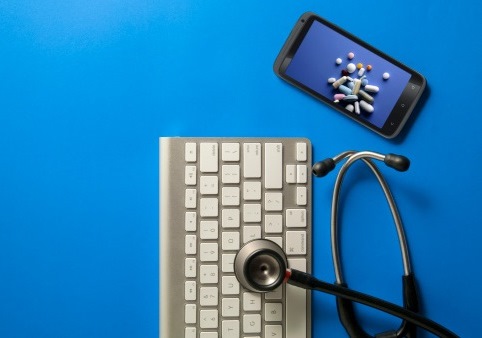ICTpost mHealth Bureau
In spite of the advancements in medical technologies and a general increase in income levels, healthcare continues to pose challenges of affordability, complexity and access across the world.
In developed markets, per capita healthcare expenditures have risen faster than both income levels and inflation rates over the past decade due to rising incidence of lifestyle driven chronic diseases and ageing populations. Yet, there have been no corresponding improvements in the quality of healthcare delivery in many countries. In contrast, developing countries primarily face the challenge of providing healthcare access to their citizens.
Mobile health, often abbreviated as mHealth, refers to the use of mobile devices, such as smartphones and tablets, to support healthcare practices and improve health outcomes. One significant aspect of mHealth is its ability to provide access to information that assists in reducing health risk factors. Here’s how mHealth contributes to this goal:
- Health Information Accessibility:
- Mobile Apps: Health and wellness apps provide users with easy access to information related to various health conditions, preventive measures, and lifestyle choices. Users can access personalized health information at their convenience.
- Remote Monitoring and Tracking:
- Wearables and Sensors: Mobile health devices, including fitness trackers and health sensors, enable users to monitor and track their health metrics. This real-time data allows individuals and healthcare professionals to identify and address potential risk factors.
- Educational Content and Resources:
- Text Messages and Apps: mHealth platforms deliver educational content via text messages, mobile apps, and multimedia resources. These resources empower users with knowledge about healthy behaviors, nutrition, and the management of chronic conditions.
- Behavioral Intervention:
- Behavioral Change Apps: Mobile health apps often incorporate features that support behavioral change. Users receive reminders, goal-setting prompts, and motivational messages to encourage healthier choices and reduce risk factors.
- Telemedicine and Remote Consultations:
- Virtual Healthcare Services: Mobile health facilitates remote consultations with healthcare professionals. Individuals can seek advice, discuss health concerns, and receive guidance on managing risk factors without the need for in-person visits.
- Medication Adherence:
- Medication Reminder Apps: mHealth apps help users adhere to prescribed medications by sending reminders and notifications. Improved medication adherence contributes to better management of chronic conditions and reduces associated risk factors.
- Physical Activity Promotion:
- Fitness Apps and Challenges: Mobile health applications encourage physical activity through features such as step tracking, workout plans, and fitness challenges. Regular exercise is crucial in mitigating several health risk factors.
- Dietary Guidance:
- Nutrition Apps: Mobile health apps offer dietary guidance, meal tracking, and nutritional information. Users can make informed food choices, leading to better management of weight and other health factors.
- Chronic Disease Management:
- Condition-Specific Apps: For individuals with chronic conditions, mHealth provides condition-specific apps that assist in managing diseases such as diabetes, hypertension, and cardiovascular conditions, reducing associated risks.
- Community Support and Social Networks:
- Health Communities: Mobile health platforms often include social features, allowing users to connect with others who share similar health goals. Peer support can be a valuable factor in reducing health risk factors.
- Early Detection and Prevention:
- Symptom Tracking Apps: Mobile apps that enable users to track symptoms and receive early warnings contribute to the early detection of potential health issues, enabling proactive preventive measures.
The accessibility and convenience of mHealth empower individuals to take an active role in their health and well-being. By providing timely information, encouraging healthier behaviors, and supporting ongoing monitoring, mHealth plays a crucial role in reducing health risk factors and promoting overall wellness.








